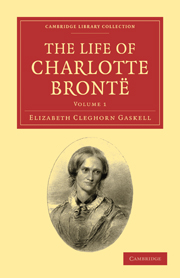Summary
Miss Brontë left Roe Head in 1832, having won the affectionate regard both of her teacher and her school-fellows, and having formed there the two fast friendships which lasted her whole life long; the one with “Mary,” who has not kept her letters; the other with “E.” who has kindly entrusted me with as much of her correspondence as she has preserved. In looking over the earlier portion, I am struck afresh by the absence of hope, which formed such a strong characteristic in Charlotte. At an age when girls, in general, look forward to an eternal duration of such feelings as they or their friends entertain, and can therefore see no hindrance to the fulfilment of any engagements dependent on the future state of the affections, she is surprised that E. keeps her promise to write. In after-life, I was painfully impressed with the fact, that Miss Brontë never dared to allow herself to look forward with hope; that she had no confidence in the future; and I thought, when I heard of the sorrowful years she had passed through, that it had been this pressure of grief which had crushed all buoyancy of expectation out of her. But it appears from the letters, that it must have been, so to speak, constitutional; or, perhaps, the deep pang of losing her two elder sisters combined with a permanent state of bodily weakness in producing her hopelessness.
- Type
- Chapter
- Information
- The Life of Charlotte Brontë , pp. 127 - 148Publisher: Cambridge University PressPrint publication year: 2010First published in: 1857

